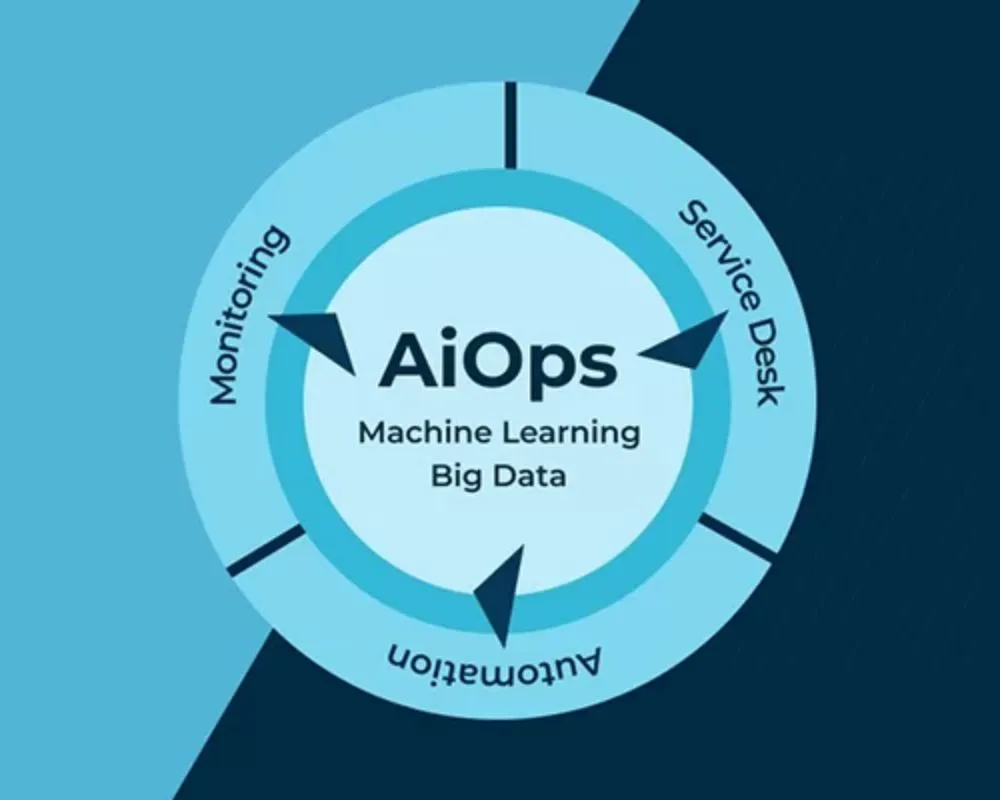Logistics 4.0 is revolutionizing the way we manage supply chains, and Artificial Intelligence (AI) plays a key role in this transformation. AI not only helps reduce costs but also increases flexibility and efficiency, thereby enhancing competitiveness and the ability to respond quickly to market changes. This article will explain in detail the important impacts of AI on the logistics and supply chain management industry.
1/ What is Logistics 4.0?

Revolution 4.0 in Logistics (Itacenter)
Logistics 4.0 represents a significant advancement in the field of supply chain management, thanks to the powerful integration of Artificial Intelligence (AI). This is a stage where digital technologies like machine learning and big data are widely applied to optimize logistics operations from end to end.
AI helps forecast and optimize transportation routes, minimize waste, and enhance efficiency. Additionally, it improves intelligent warehouse management and enhances the ability to detect fraud and risks in the supply chain.
With Logistics 4.0, businesses can achieve higher flexibility, reduce costs, and promote sustainable development. The application of AI in logistics is not just a trend but a crucial factor in enhancing competitiveness and swiftly responding to market changes.
2/ Advantages when applying AI in Logistics activities

AI applications change the game in the transportation and logistics industry (Intech Group)
- Predict and enhance shipping routes:
One of AI’s primary benefits is its power to predict and improve shipping routes. Artificial intelligence can anticipate and analyze traffic patterns and weather to identify the most efficient shipping routes. This enhances schedule accuracy and flexibility while cutting down on travel times and expenditures.
- Demand planning and inventory control:
By examining past and current market data, AI can assist with both demand forecasting and inventory management. AI can also predict product demand and consumption trends, giving firms the ability to develop more accurate and adaptable inventory management plans.
- Supply chain risk management:
Artificial intelligence increases the capacity to detect and handle supply chain risks. At every level of the logistics business, artificial intelligence helps to increase security and efficiency, from real-time monitoring to the identification of fraud in management.
- Service and customer interaction:
AI is used to improve both of these areas. Artificial Intelligence will improve in-person client interactions and foster consumer connections.
3/ How has AI application changed the Logistics field?

The effectiveness of AI cannot be denied (Vietnam Work)
The technology known as artificial intelligence (AI) has greatly improved logistics and had a major impact. Rather than using simple human analysis and data collecting methods, artificial intelligence (AI) anticipates demand and arranges orders in machine learning algorithms and future analytics complexes.
This removes waste and bad quality by enabling technology to precisely estimate and provide the necessary number of items.
Furthermore, in warehouses, the use of collaborative robots (cobots) and automated carts (AGVs) has helped automate the order selection process. AGVs carry and load goods automatically in warehouses, leaving the factory without a human driver to verify inventory or track the location of goods.
The monitoring of goods from warehouse receipt to warehouse discharge has also been performed using IoT. Real-time tracking and revision of changes in product amount and positioning are made feasible utilizing RFID sensors and smart shelves.
The present database comprises all of the data from all sources aggregated and updated, which has increased warehouse management’s efficiency and transparency.
4/ Example of AI in Logistics field

AI Logistics in real business (akaBot)
Amazon’s automation system is an excellent example of applying artificial intelligence in warehouse management. AI-controlled robots transport items across the warehouse, increasing order processing speed and accuracy while lowering mistakes and labor expenses.
UPS utilizes AI to improve delivery routes. AI technology analyzes real-time weather data and traffic conditions to assist vehicles in choosing the best route. This decreases delivery time and fuel consumption.
DHL also uses artificial intelligence to manage risk by monitoring and anticipating dangers in its supply chain. AI algorithms provide early identification of risks and prompt preventative measures, assuring product and information security.
FedEx delivers customer support 24 hours a day, seven days a week via AI chatbots. This chatbot accomplishes fundamental duties like checking orders and managing customer complaints fast and effectively, therefore increasing the user experience.
Finally, IBM Watson uses artificial intelligence to monitor the logistics sector while also assisting firms in identifying trends and quickly changing business strategies.
5/ The future of AI in the field of Logistics

Future fluctuations in the Logistics industry (VNG Cloud)
Artificial intelligence (AI) is opening up great prospects for the logistics industry, promising to bring many groundbreaking innovations.
Smart demand forecasting and inventory management:
- Machine learning algorithms will analyze sales data, market trends, weather conditions, etc. to forecast demand more accurately.
- Businesses can optimize inventory levels, avoid overstocking or understocking, and reduce storage costs and losses.
- Smart alerting systems will help businesses proactively replenish inventory when needed.
Process automation:
- Robots will replace humans in monotonous, dangerous, or time-consuming tasks such as loading and unloading goods, sorting products, and packaging.
- Automated systems will optimize the movement of goods in the warehouse, minimizing errors and accidents.
- Self-driving vehicles will be used to transport goods over short distances, reducing transportation and labor costs.
Enhanced data analysis:
- AI will collect and analyze data from multiple sources such as IoT sensors, GPS systems, customer records, etc.
- Businesses can track the movement of goods in real time, identify bottlenecks in the supply chain, and develop improvement solutions.
- Understanding customer needs and behavior to personalize the shopping experience and increase customer satisfaction.
Self-driving vehicles and autonomous robots:
- Self-driving trucks will be used to transport goods over long distances, minimizing fuel and labor costs.
- Autonomous robots will assist humans in complex tasks such as loading and unloading containers and arranging goods in the warehouse.
- The use of unmanned vehicles will help reduce traffic accidents and protect the environment.
Overall, AI will play an important role in improving the efficiency, productivity, and competitiveness of the logistics industry in 2025. However, the application of AI also comes with some challenges such as high investment costs, ethical issues, and cybersecurity. Businesses need to have a specific strategy to apply AI effectively and maximize benefits.
6/ Conclusion
AI has been producing tremendous changes in the logistics area, offering numerous notable advantages in terms of efficiency and competitiveness. From warehouse management, shipping route optimization, to boosting customer service and market forecasting, AI has demonstrated its crucial significance.
In the future, the growth of AI promises to continue to alter the logistics sector, offering up new possibilities and allowing firms to not only adapt but even lead in a competitive market.












